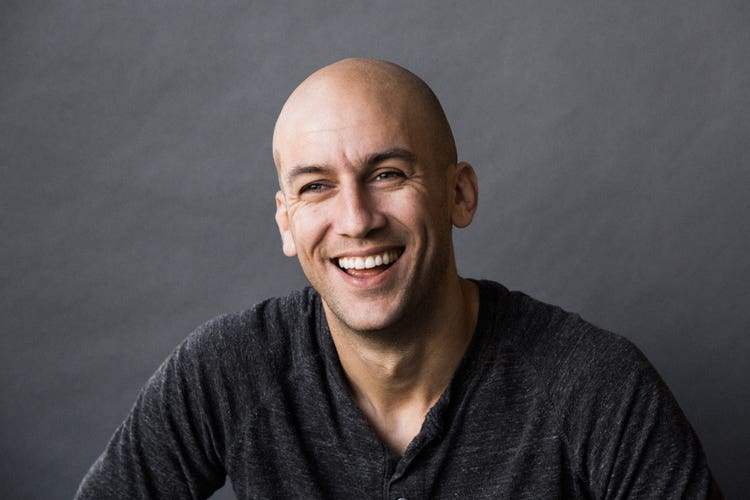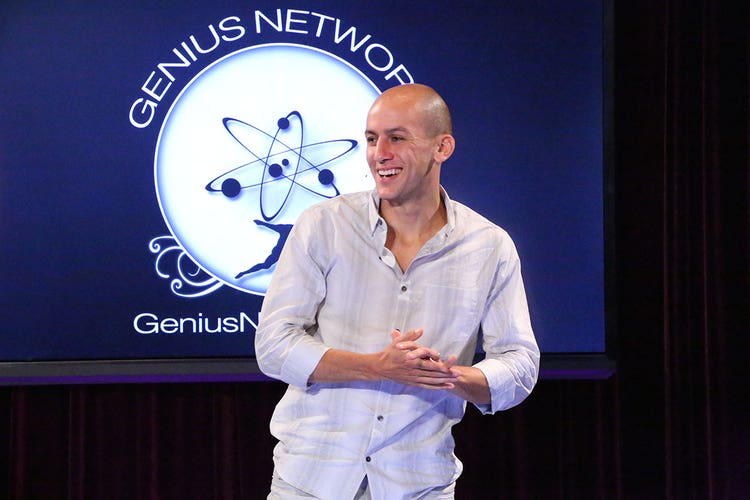Productivity Expert Ari Meisel on Streamlining Your Life

While most of the world is rushing headlong into the new decade with epic goals and transformational plans, productivity and efficiency expert Ari Meisel says to pump the breaks. Meisel, the best-selling author of “The Art of Less Doing” (Lioncrest Publishing, May 2016) and “The Replaceable Founder” (CreateSpace, September 2018), is a self-described “overwhelmologist.” He believes that the key to achieving your goals lies not within a busy schedule but instead within fierce clarity and strategic use of time.
Meisel learned this lesson the hard way: In his early 20s, long hours at a stressful job—combined with cigarettes, alcohol and fast food—created a chronic health condition. Crohn’s disease forced him to reduce his workday hours from 18 to just one, a restriction that ultimately inspired his methodologies for overcoming overwhelm. Oh, and he also overcame his illness.
24Life Editor-in-Chief Lashaun Dale spoke with Meisel to learn more about the philosophies and methodologies to manage overwhelm so that you can do less and live more.
On optimizing

“Overwhelm for most people is a symptom of not knowing what’s causing the overwhelm,” Meisel says. If you don’t know what’s triggering the feeling, you can’t work to lessen that feeling. To figure it out, he helps his clients to optimize, automate and outsource. Optimization starts with tracking how you do what you do. Meisel says that tracking time, either by hand on paper or with an app like RescueTime or Time Doctor, can be eye-opening. “You take that person who thinks they spend all day in meetings, and it turns out they’re spending three hours on email,” he says.

To delineate your unique ability from delegable tasks, Meisel says to draw three circles. Write three to five tasks you are awesome at in the first circle, three to five tasks you are competent but not excellent at in the second circle, and three to five tasks you struggle with but still complete in the third circle. The first circle contains the items you should be spending your time on, the second are tasks you should offload to a team member, and the third are responsibilities to cheaply outsource.
Another technique of Meisel’s simply asks, “What would you do if you could only work one hour per day?” Clients quickly realize that the question isn’t what would you do but what wouldn’t you do. “If the things you wouldn’t do still need to get done, then who or what is going to do them for you?” he asks. Answering that question forces people to rethink how they might better share their responsibilities.
On automating and outsourcing



Most recurring necessities can—and should, according to Meisel—be automated. He recommends Amazon Subscribe & Save for monthly toiletries, Chewy for periodic pet food delivery and Quip for quarterly toothbrush refills. Meisel also loves PillPack, a company that delivers envelopes of time-stamped vitamins for daily use. “These sound like trivial things,” he says, “but they take time. They take effort.” Taking these tasks off your to-do list frees up time and reduces the mental to-do list that contributes to overwhelm.
While most people don’t think they have the money to outsource tedious but necessary duties (e.g., booking travel, filing taxes, managing social media, etc.), Meisel says virtual assistants currently cost just a few dollars per task. If your hesitancy lies in sharing personal information, he says to take precautions but also consider that you’re likely already giving up a lot of your personal data via Siri, Alexa, online banking, online purchases and apps. “Ultimately, it’s a trade-off between perceived privacy and convenience,” Meisel says. “And in my experience, convenience usually wins.”
Meisel maintains a minimalist mindset to stay on track. When any single decision arises, he gives himself one of three options: Delete or decline, do it now (which may entail delegating) or defer. To communicate delegation to his team members, Meisel uses Voxer, Slack and Intercom. He only defers tasks if there is genuinely a better time and place to handle them. He uses Trello to track and later organize deferred tasks, along with any “shiny object” ideas from a given day.

On your best life

Meisel’s productivity practices, which save an average of 10 hours a week, allow his clients to spend time on the people and activities that bring them joy and meaning. Through optimization and delegation, Meisel himself is able to run a seven-figure business, fit in ample self-care and end his workday at 2:30 p.m., when he picks up his four children from school. He firmly believes that absolutely anyone can use his techniques to streamline their lives in order to truly start living their lives.
Visit Meisel’s website for more info on his books, courses and speaking engagements.
Video & photo credit: Ari Meisel